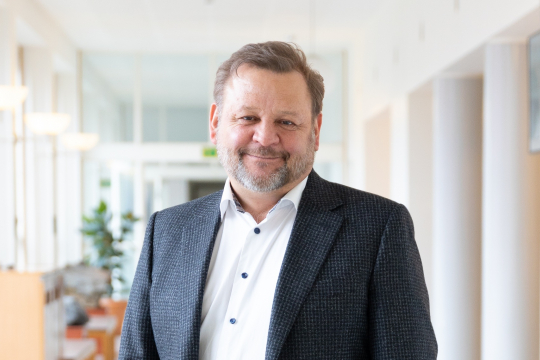The world is facing unprecedented challenges, such as climate change, biodiversity loss, poverty, and conflicts. Governments urgently need strong academic institutions and evidence-based policies to address those challenges. The Swedish International Development Cooperation Agency (Sida) signed a 3-year prolonging of the agreement with Environment for Development (EfD) in December to support the organization’s research and policy engagement in the Global South.
“Environment for Development (EfD) is a longstanding and valued partner of Sida. The renewal of the agreement for an additional three years underscores the success and significance of this collaboration. Addressing today’s urgent global challenges linked to environmental and climate challenges requires robust research capacity, says Torbjörn Pettersson, Assistant Director General and Head of the Department for Global Operations at Sida.
"Concerning inequality of research resources"
Torbjörn Pettersson underlines the inequality of global research funding and opportunities.
“Sub-Saharan Africa, for instance, home to nearly 15% of the world’s population, accounts for a mere 0.1% of the world’s scientists. The resources available to scientific projects are predominantly targeted to solve problems in the wealthiest regions. Currently, less than 1% of global funding for climate research is directed toward Africa.”
“This disparity is particularly concerning, as it impedes the ability of the countries that are most affected by climate change to influence their own futures in terms of adaptation, sustainable development, and green transition. EfD is a vital partner in addressing global environmental and climate challenges through its commitment to fostering research and capacity-building efforts that prioritize sustainable solutions for the regions most affected by climate change."
Continued support enables further development
This encouragement and continued collaboration are invaluable for the EfD network.
“We are extremely happy for Sida’s continued support for strong research environments and active policy engagement by academics in the Global South. This means we can generate more policy-relevant knowledge that can support evidence-based policies,” says Gunnar Köhlin, Director of EfD.
An external evaluation of EfD in 2024 showed that the organization provides research of high international standards, the research environment at the centers has been enforced, and, compared to four years ago, the collaboration between the centers has increased, and they have expanded their external funding.
Based on the recommendations from the external evaluation, EfD will further develop its five collaborative research programs, strengthen its system for policy impact, improve financial diversification, synchronize administrative systems, and implement a gender action plan.
“Our long-term collaboration with Sida has led to truly transformative impacts. By empowering academics in the Global South and providing them with the means to engage with policymakers, we have already seen great impacts in terms of improved policies and more sustainable use of resources, and we will keep developing our operations,” says Gunnar Köhlin.
